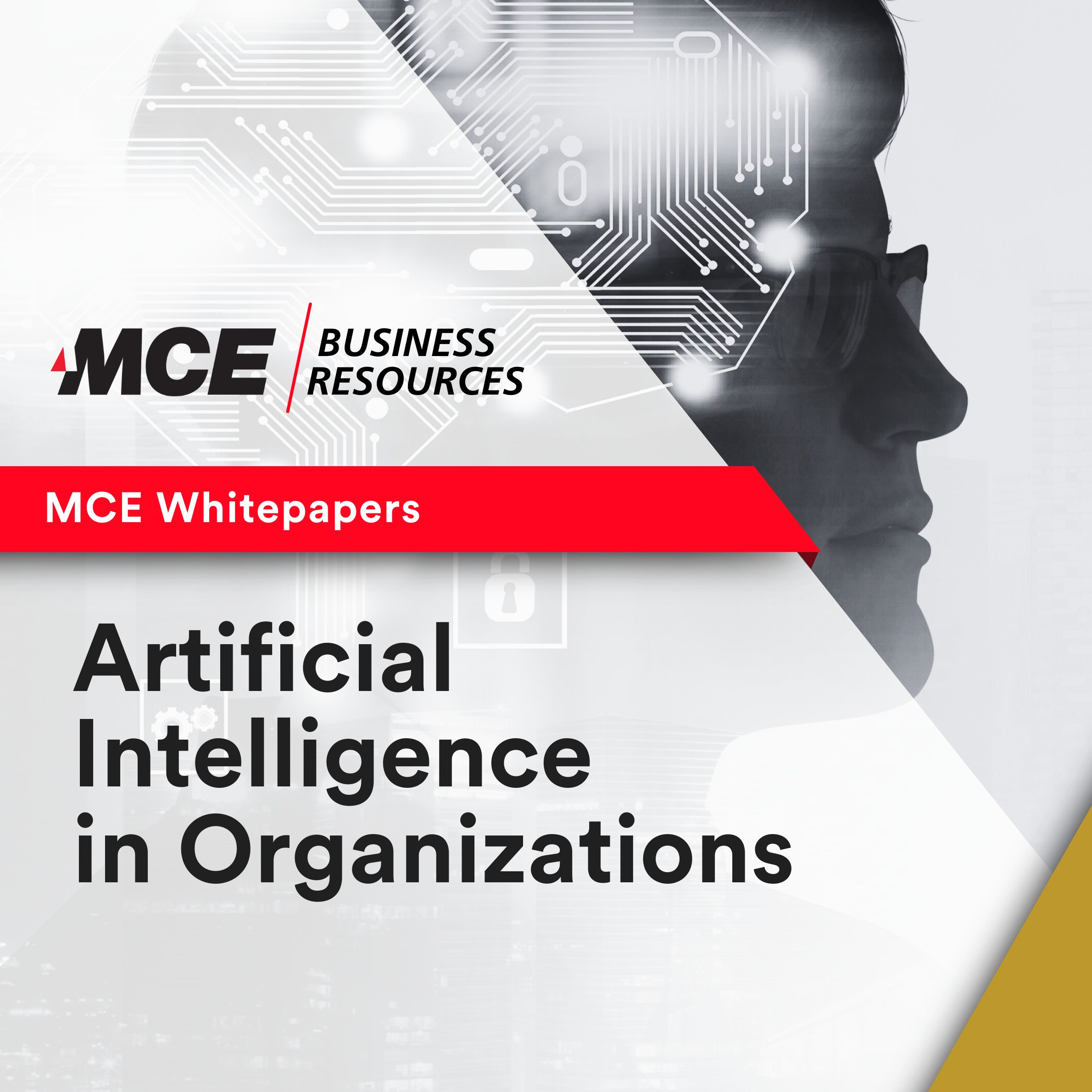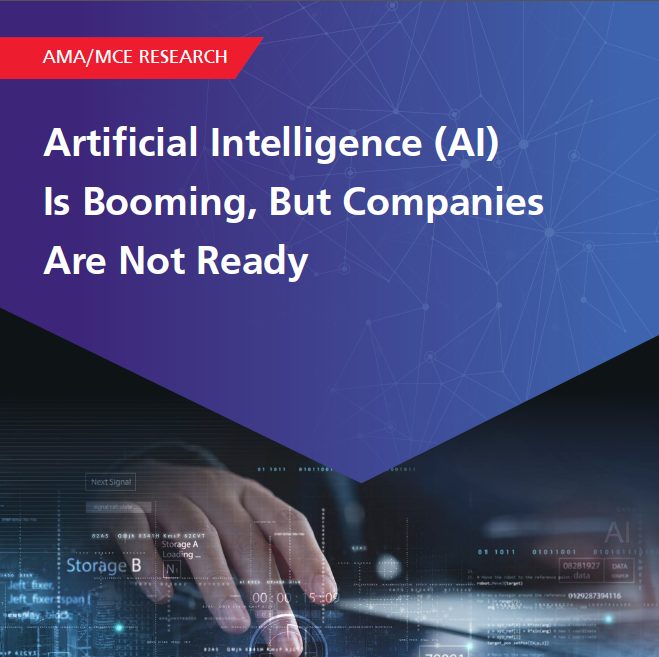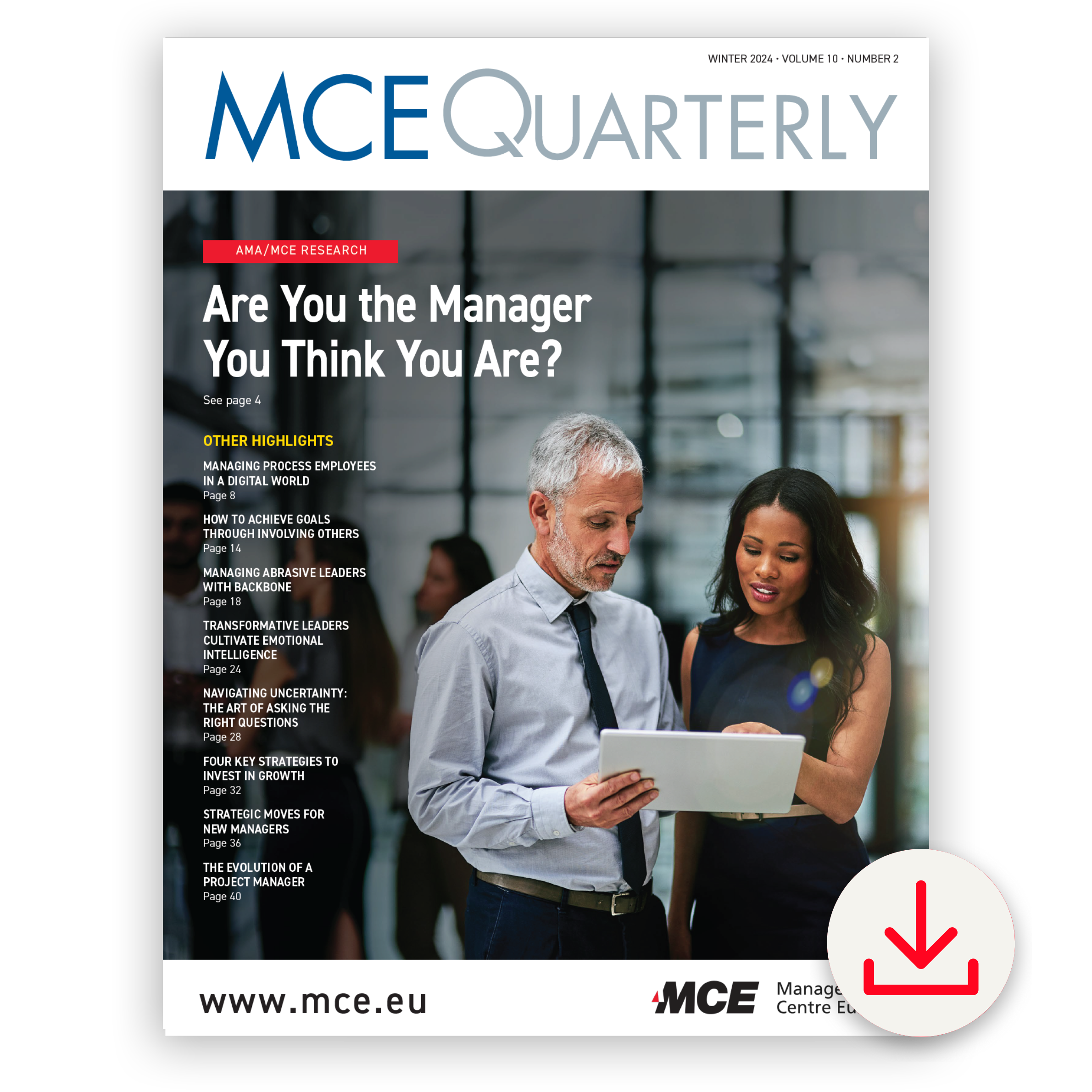
In recent years, artificial intelligence (AI) has proliferated throughout the economy, but a recent AMA/MCE survey found that many, and perhaps most, U.S. companies are not ready for this disruptive technology. While employees are largely receptive to AI, our survey discovered companies lack strategic planning, governance, and training.
The launch of ChatGPT in late 2022 dramatically amplified attention to AI. The chatbot enables people to converse in text with a machine and receive real-time responses that are generally smart, and sometimes astounding, erroneous, or unsettling.
ChatGPT may generate buzz, but in reality, AI has infiltrated our work and lives in ways that we already take for granted. AI-driven software tells you what products to buy next (Amazon) and which shows you’re bound to enjoy (Netflix); it even helps determine the content of those shows. It streamlines ride-share journeys (Uber), identifies the people pictured in your photo library (Google Photos), and it’s “in just about every nook and cranny” of the iPhone’s operating system.
In the arts, it’s creating images, composing music, and writing books. In education, AI lets apps like Duolingo develop lessons calibrated to your strengths and weaknesses. For Walmart and other retailers, the technology helps manage inventory by predicting which products people will buy and when, and whether they’re likely to choose delivery or in-store pickup. AI also is transforming medicine in a multitude of ways. For instance, it is promising to help doctors identify cancer cells in near real time in the operating room, versus waiting a week for a pathology lab.





